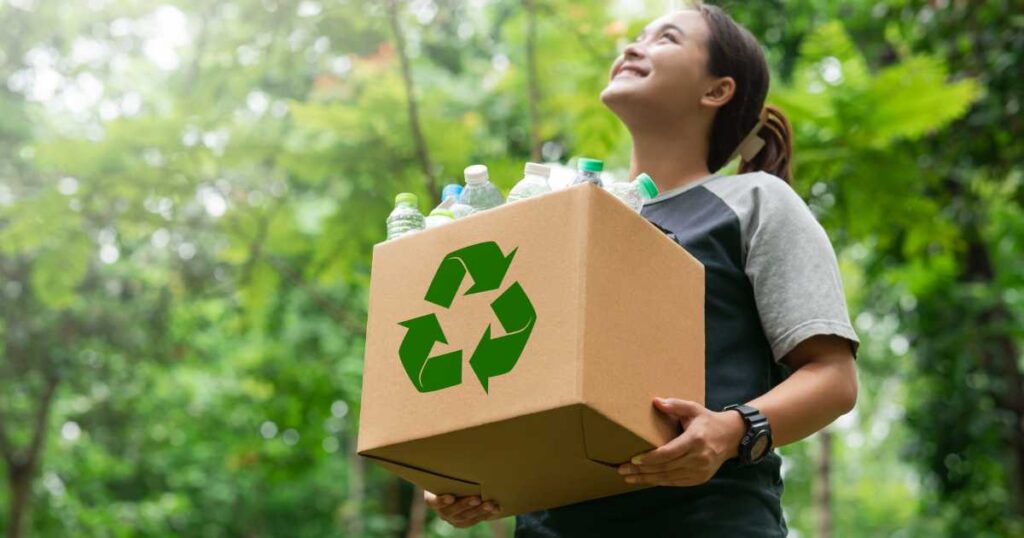Planning and hosting big events and festivals is an absolute thrill. It’s a chance to bring people together for unforgettable experiences, create lasting memories, and have an all-around great time. But here’s the catch: these celebrations often generate an overwhelming amount of waste, and that’s not so great for our environment.
From the food we eat to the decorations we use, these events produce tons of disposable materials.
And while we’re caught up in the excitement, it’s easy to overlook the impact of all that trash. But, here’s the good news: with a little planning, we can make a huge difference. That’s why it’s crucial to have a well-thought-out waste reduction plan in place.
This article will walk you through the steps to implement an effective waste reduction strategy for large events and festivals. So, while we’re having a blast, we’re also doing our part to protect the planet for future generations.
Understanding the Environmental Impact of Events and Festivals
Think about the last music concert, food festival, or sports game you attended. Chances are, there was a lot of food, drinks, and materials being used—and tossed out when they were no longer needed. Single-use plastic cups, food wrappers, paper napkins, and even the balloons and decorations we use to add to the festive atmosphere all contribute to a massive waste pile.
The scale of this waste can be staggering. According to some studies, large events can generate tons of waste every day—much of it single-use items that end up in landfills. And this waste doesn’t just disappear. As it decomposes in landfills, it releases harmful gases like methane, which can worsen climate change.
Plus, plastics and other materials can take hundreds of years to break down, polluting the environment long after the event is over. This waste can also spill over into our local communities. Litter can be blown into nearby parks, streets, and bodies of water, affecting wildlife and polluting the landscape we cherish. So, what can we do to fix this? The key lies in planning ahead and managing waste responsibly.
Using a rental dumpster can simplify disposal while keeping the venue clean.
Why Waste Reduction Should Be a Priority?
By reducing the waste generated during events and festivals, you can also save money on disposal costs by choosing cost-effective dumpster rental options. Events can serve as powerful platforms to raise awareness about sustainability and inspire others to adopt more eco-friendly practices in their own lives.
Creating a waste reduction strategy doesn’t just benefit the planet—it can improve the overall event experience. People are becoming more conscious about sustainability, and many are looking for ways to enjoy events without feeling guilty about the environmental impact.
By integrating green practices into your event planning, you can attract a larger audience, improve attendee satisfaction, and even save on costs (like waste disposal fees).

Steps to Reduce Waste at Large Events and Festivals
Having identified the problem, let’s now delve into the solutions. Here are some practical ways to minimize waste at your next big event:
Go Paperless: Digital tickets, promotional materials, and schedules can cut down on paper waste. Encourage attendees to use their phones for event updates, directions, and tickets.
Switch to Reusable Items: Whenever possible, use reusable cups, plates, and cutlery. Offer incentives for guests who bring their own reusable bottles or coffee cups, such as a discount or a free item.
Minimize Single-Use Plastics: Reduce or eliminate plastic cups, straws, and bags. Opt for compostable alternatives, or better yet, try to eliminate them entirely. Work with vendors who align with these values to ensure all materials are eco-friendly.
Set Up Proper Recycling and Composting Stations: Make it easy for attendees to dispose of their waste correctly by setting up designated recycling and composting bins around the venue. Label the bins clearly to avoid confusion and encourage proper sorting.
Encourage Digital and Eco-Friendly Marketing: Instead of printing thousands of flyers and posters, promote your event digitally through social media, websites, and emails. If physical signage is necessary, use materials that are recyclable or reusable.
Plan for Waste Management: Partner with a waste management company that specializes in large events to ensure waste is disposed of properly. Some companies offer services like waste audits and zero-waste solutions that can help you track and reduce the amount of waste generated
Engage Attendees in the Effort: Encourage your guests to be part of the solution. Offer educational materials or brief announcements about the importance of reducing waste and how they can help. You can even turn it into a fun challenge, like a “green event” competition where attendees are rewarded for bringing reusable items or properly sorting their waste.
The Bigger Picture: Sustainability Beyond the Event
The impact of waste reduction doesn’t end when the event is over. By setting a good example and sharing your sustainability efforts with your audience, you can inspire other event organizers to take similar steps. Additionally, the more we talk about reducing waste, the more it becomes a part of the conversation in our communities.
We can encourage others to rethink how they consume and dispose of materials in their everyday lives. In the end, hosting an eco-friendly event is about more than just cutting down on waste—it’s about creating a culture of sustainability that can last long after the event ends.
Harnessing Technology to Amplify Our Waste Reduction Efforts
Let’s dive into how we can use technology to spread the word and get everyone on board with our exciting waste reduction initiatives for the upcoming event. Through social media, event apps, and our website, we can educate attendees on proper waste segregation and the benefits of using eco-friendly dumpsters for recycling. This ensures that all attendees are well-informed and ready to take action.
But that’s not all—we’ll actively encourage participation and collaboration, inviting everyone to join in our mission to make a real impact on reducing waste. By using technology to foster engagement, we can keep the energy high and make sure that our collective efforts lead to something truly meaningful!

Frequently Asked Questions
Why is waste reduction important for large events and festivals?
Waste reduction is crucial because large events and festivals tend to generate massive amounts of waste, much of which can harm the environment if not properly managed. Reducing waste helps conserve resources, decrease pollution, and supports long-term sustainability.
What are the essential elements of an effective waste reduction strategy for events?
A successful waste reduction strategy includes conducting waste audits, implementing source reduction methods, creating recycling and composting programs, running education and awareness campaigns, and partnering with eco-friendly vendors and suppliers.
How can event organizers motivate attendees to actively engage in waste reduction efforts?
Event organizers can motivate attendees by providing clear signage, setting up designated waste sorting stations, offering volunteer assistance, and providing incentives like discounts or rewards for responsible waste disposal.
Are there specific legal regulations or permits needed for implementing waste reduction at events?
The regulations and permits required for waste reduction can vary depending on the location. It’s essential to check with local authorities and waste management agencies to ensure compliance and obtain any necessary permits.
Which materials are suitable for recycling or composting at events?
Common recyclables at events include paper, cardboard, glass, and certain plastics. Compostable materials often include food scraps, napkins, and compostable service ware made from materials like cornstarch or sugarcane.
How can events ensure that waste reduction efforts are cost-effective?
To keep waste reduction cost-effective, events can explore sponsorship opportunities with waste management companies, negotiate favorable deals for recycling and composting services, and minimize waste generation by planning thoughtfully from the start.
Conclusion
Large events and festivals are meant to be fun, memorable, and community-building experiences. But, if we want to continue enjoying these gatherings without harming the planet, it’s essential to implement waste reduction strategies.
By planning ahead, reducing single-use items, and managing waste responsibly, we can protect our environment while still having a great time. So, let’s keep the good times rolling—without the waste! Together, we can create sustainable celebrations that everyone can enjoy while ensuring the planet stays healthy for future generations.
